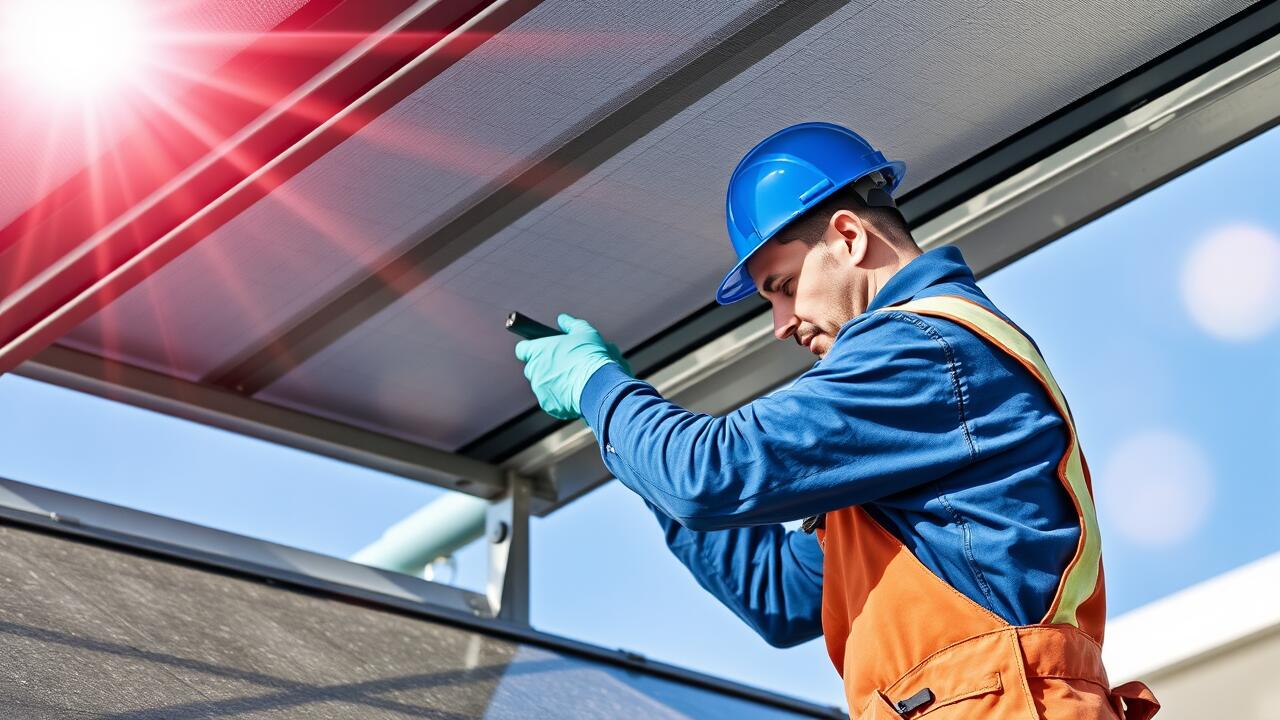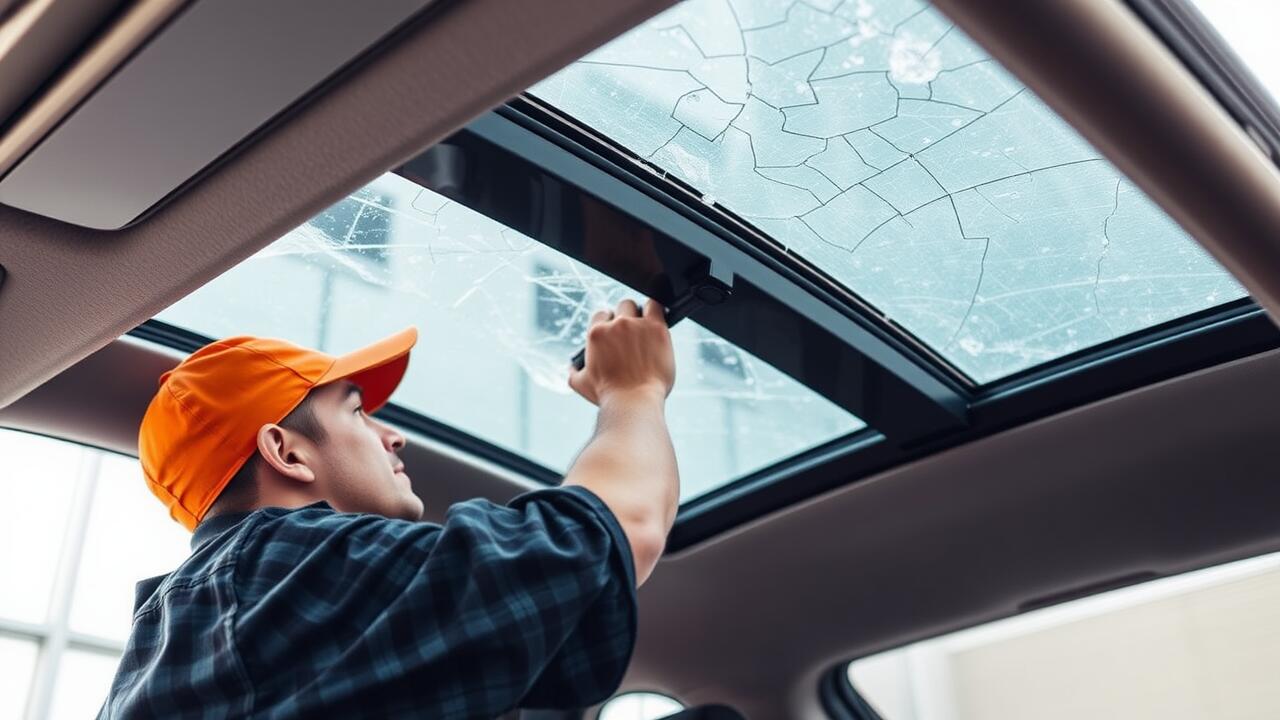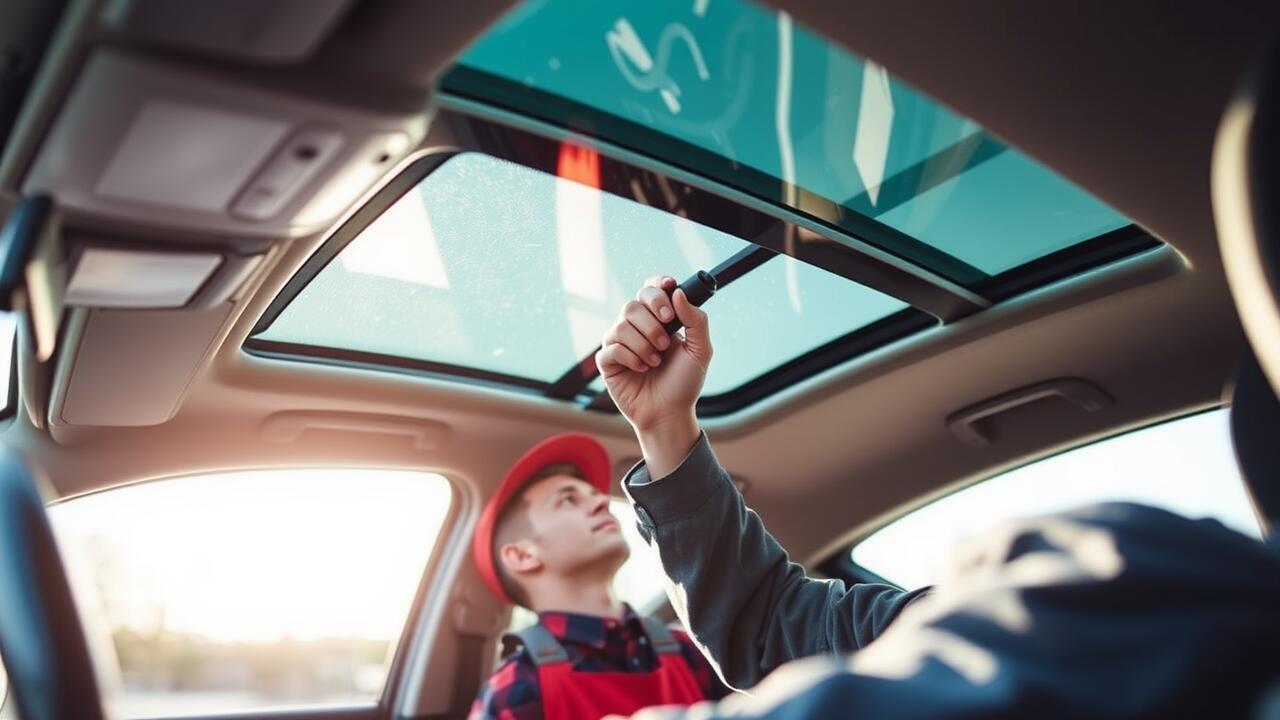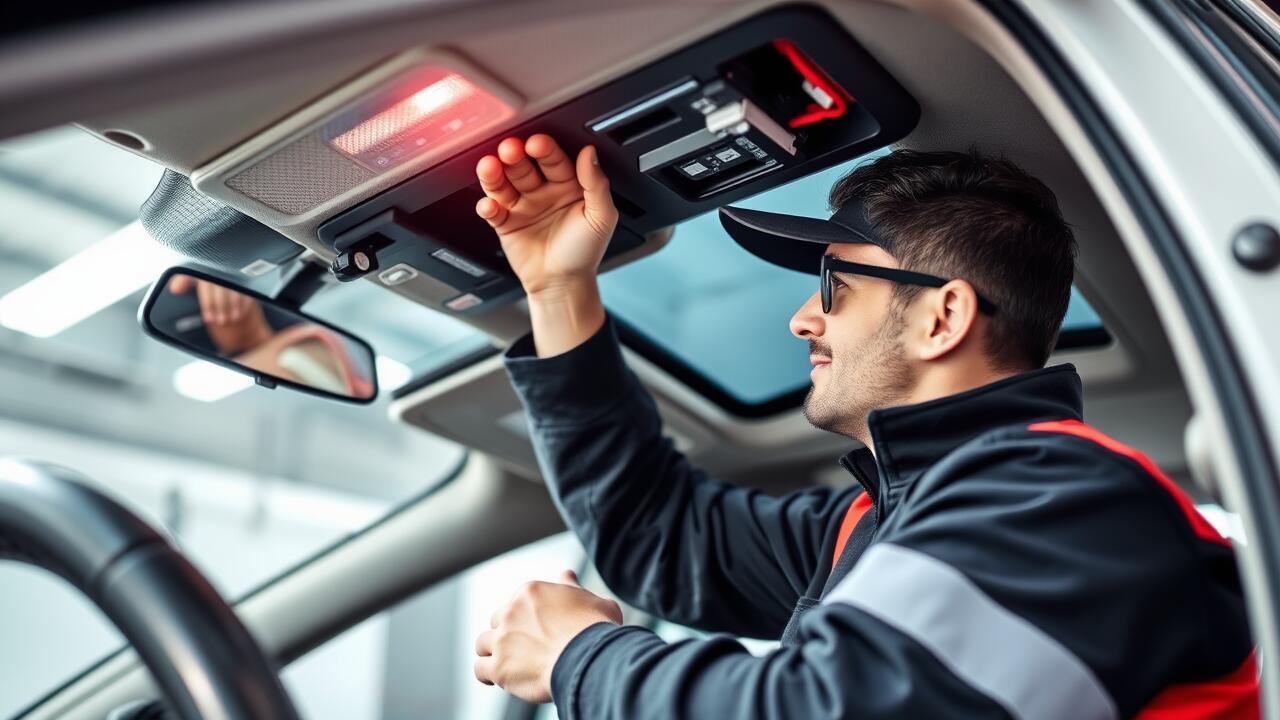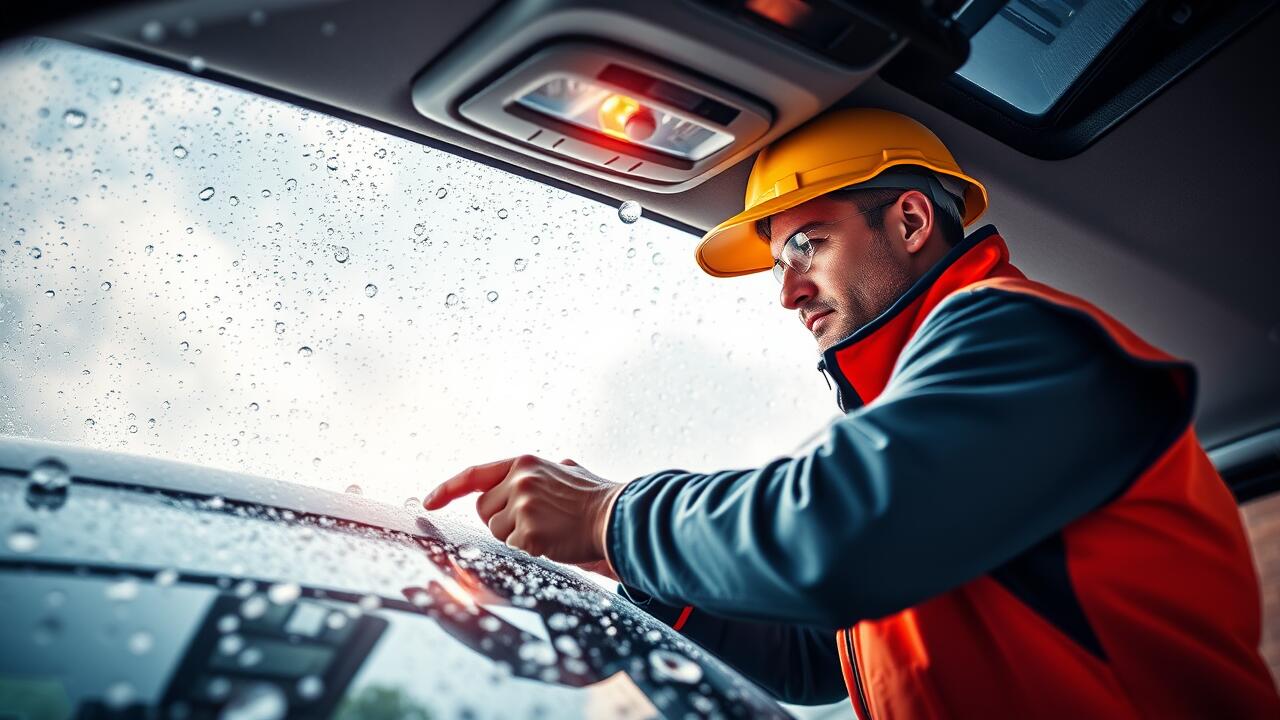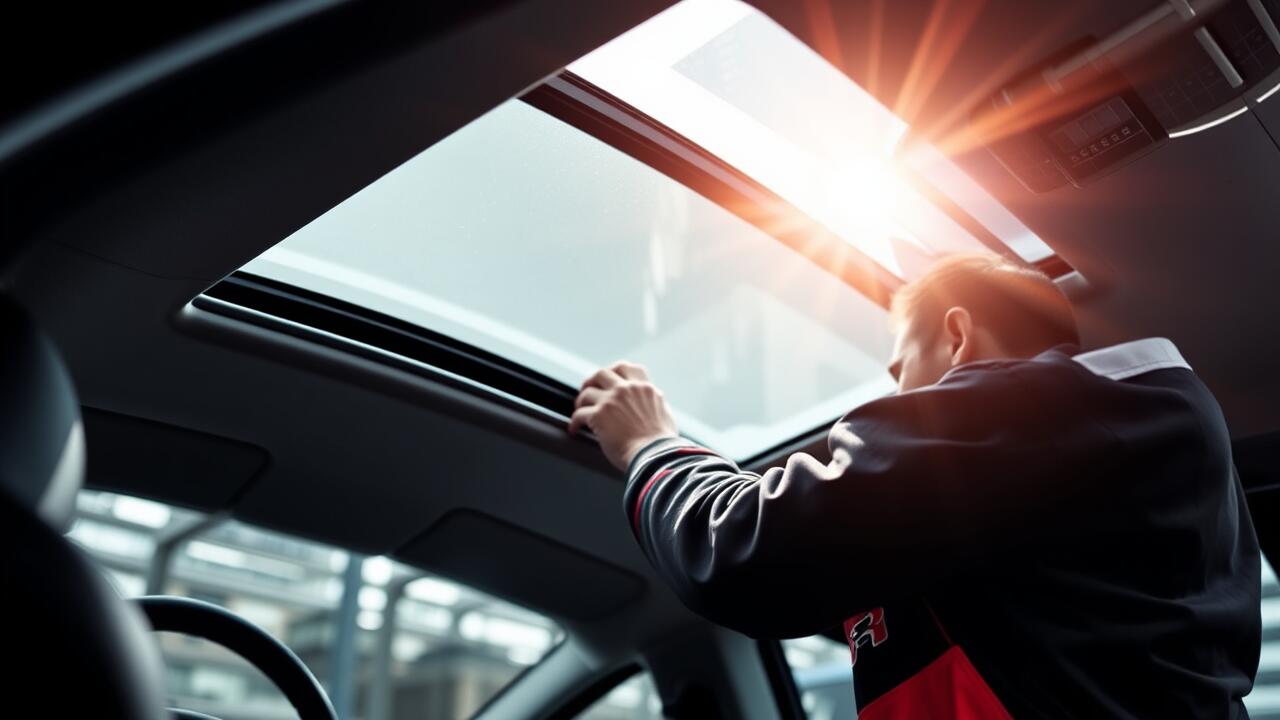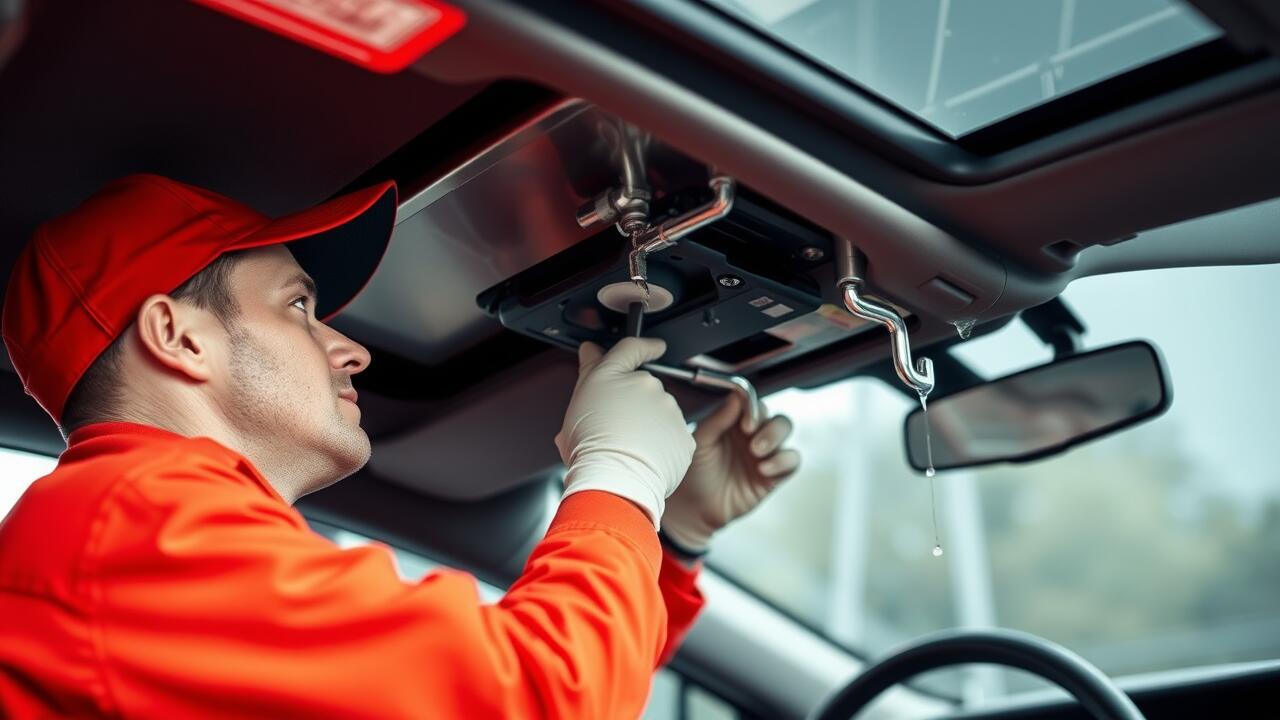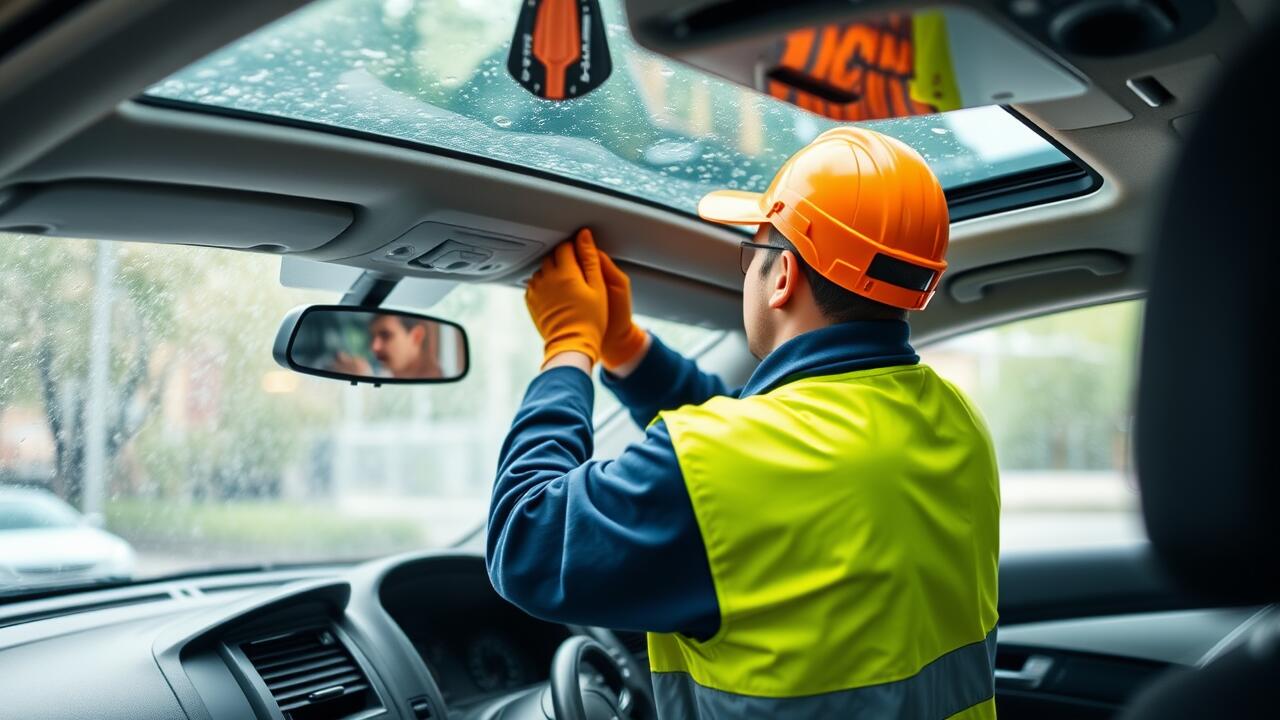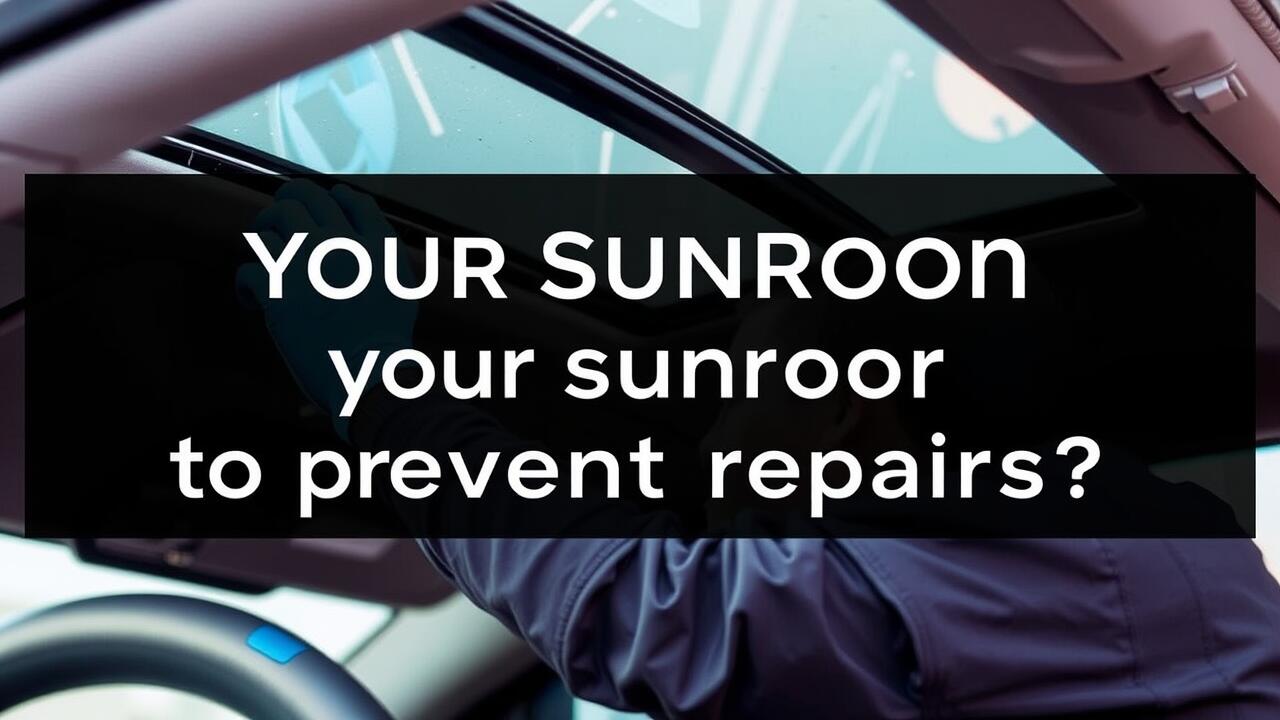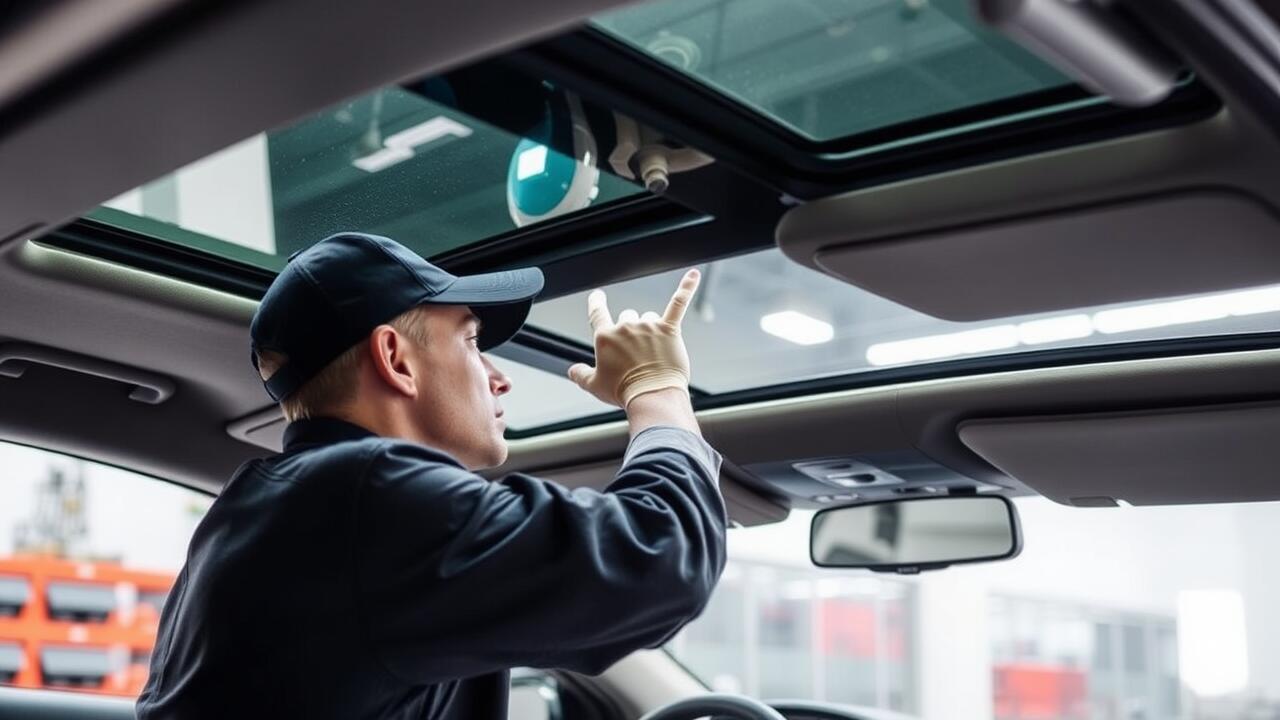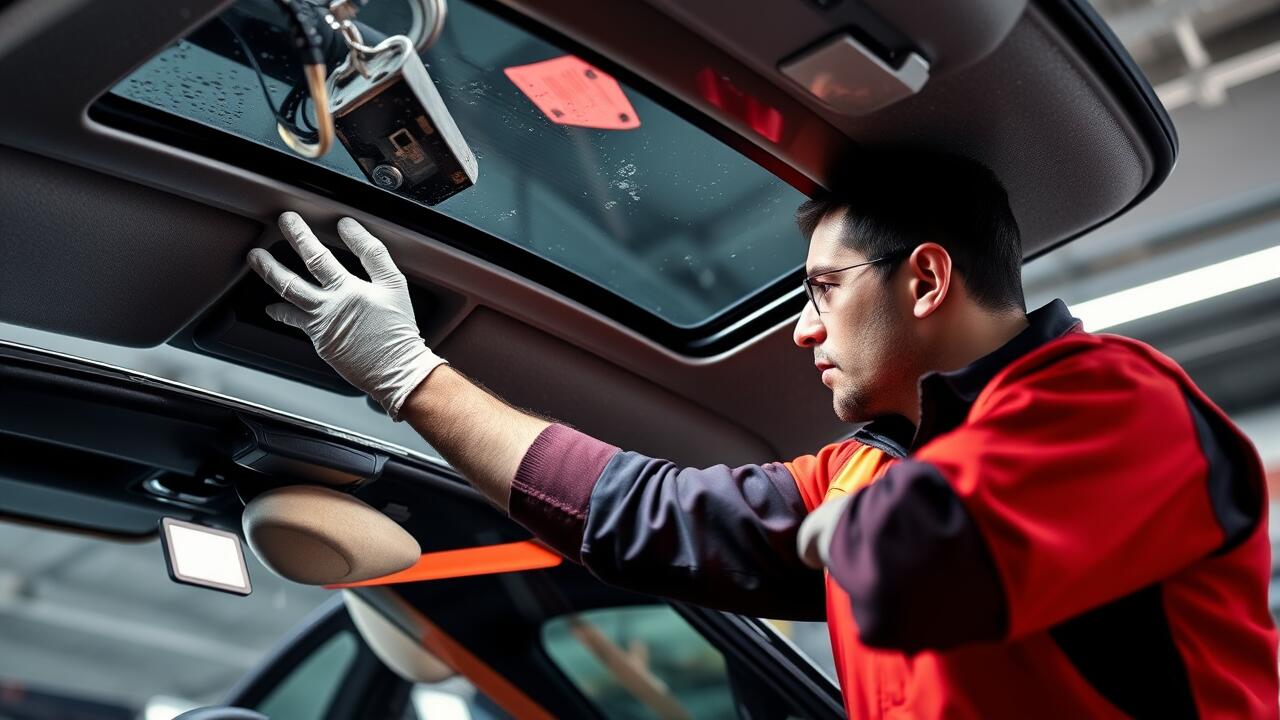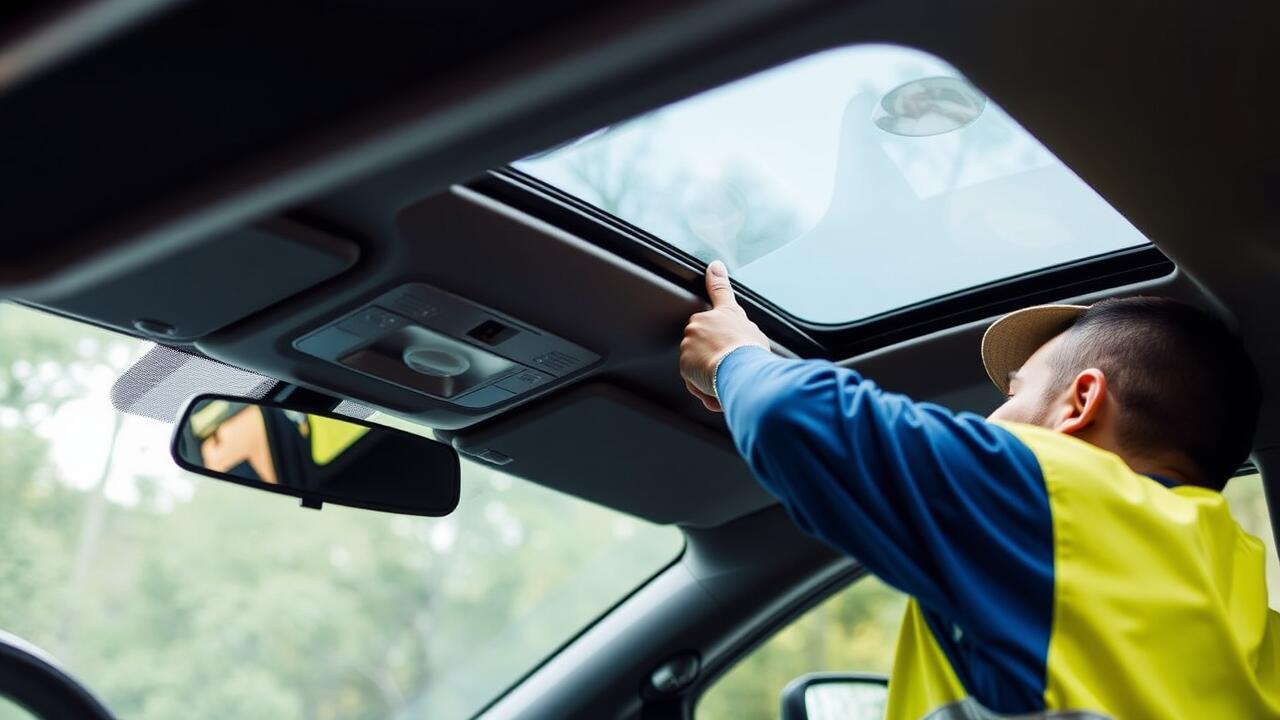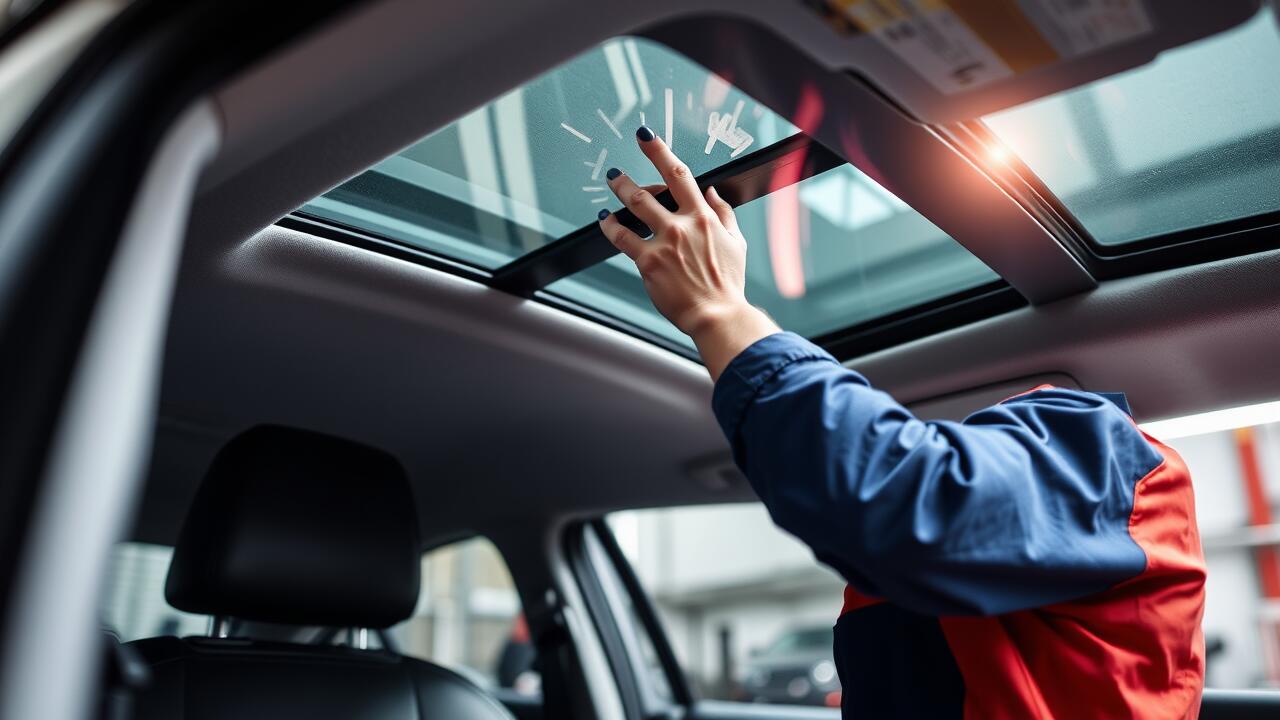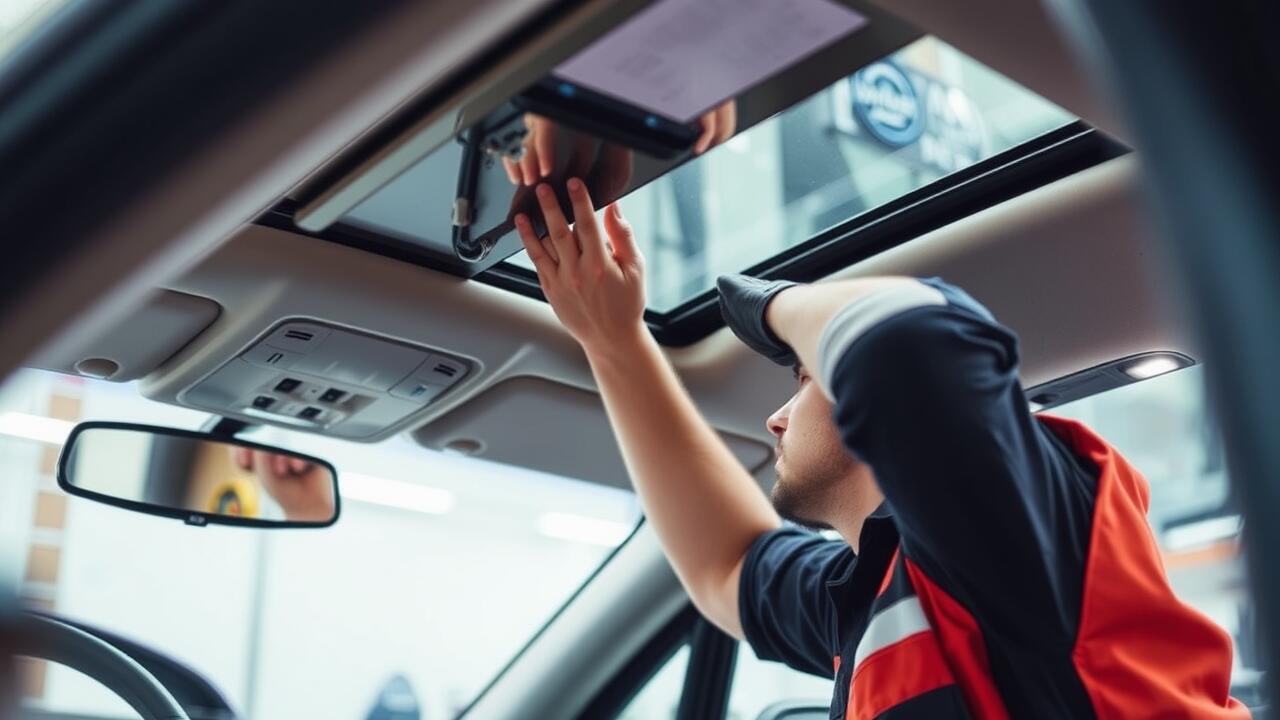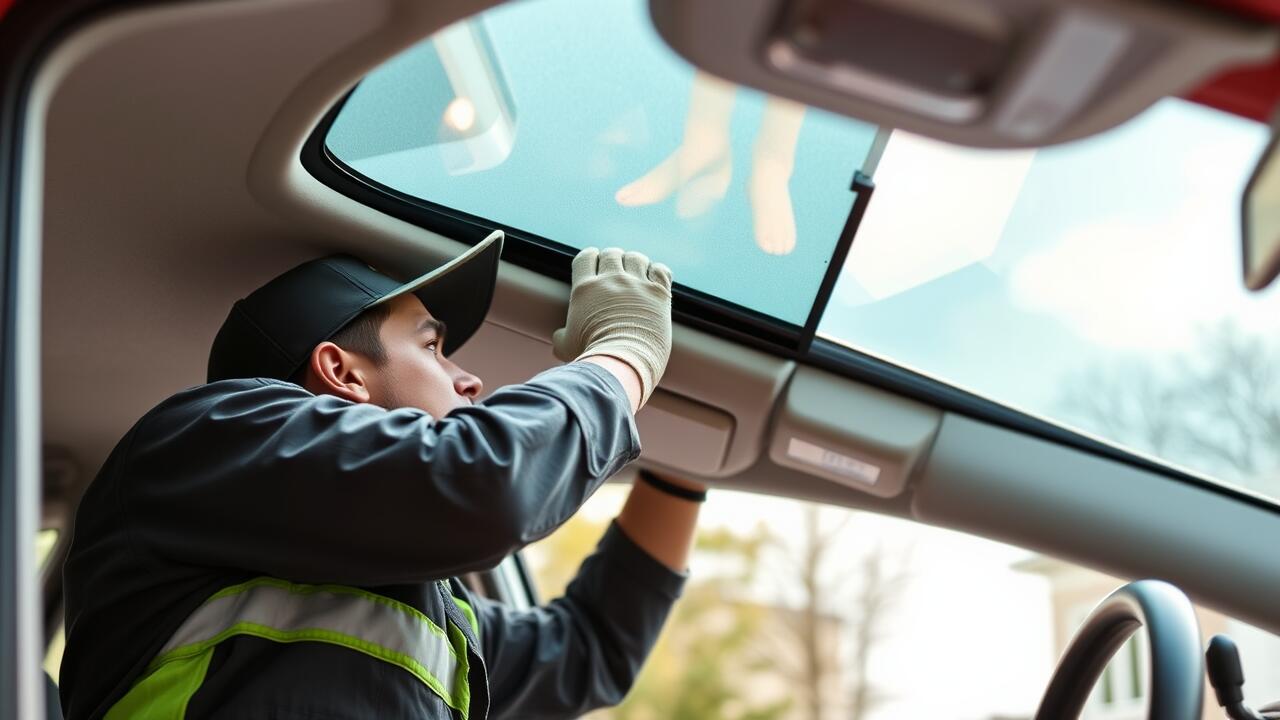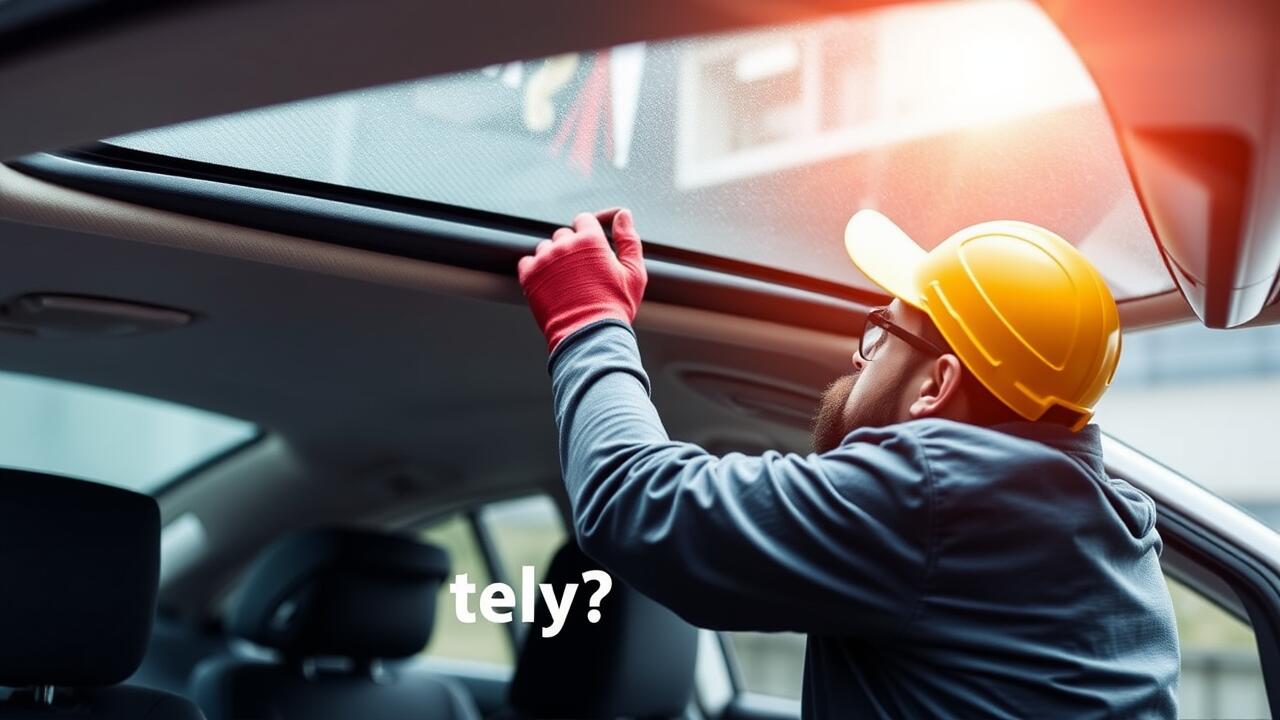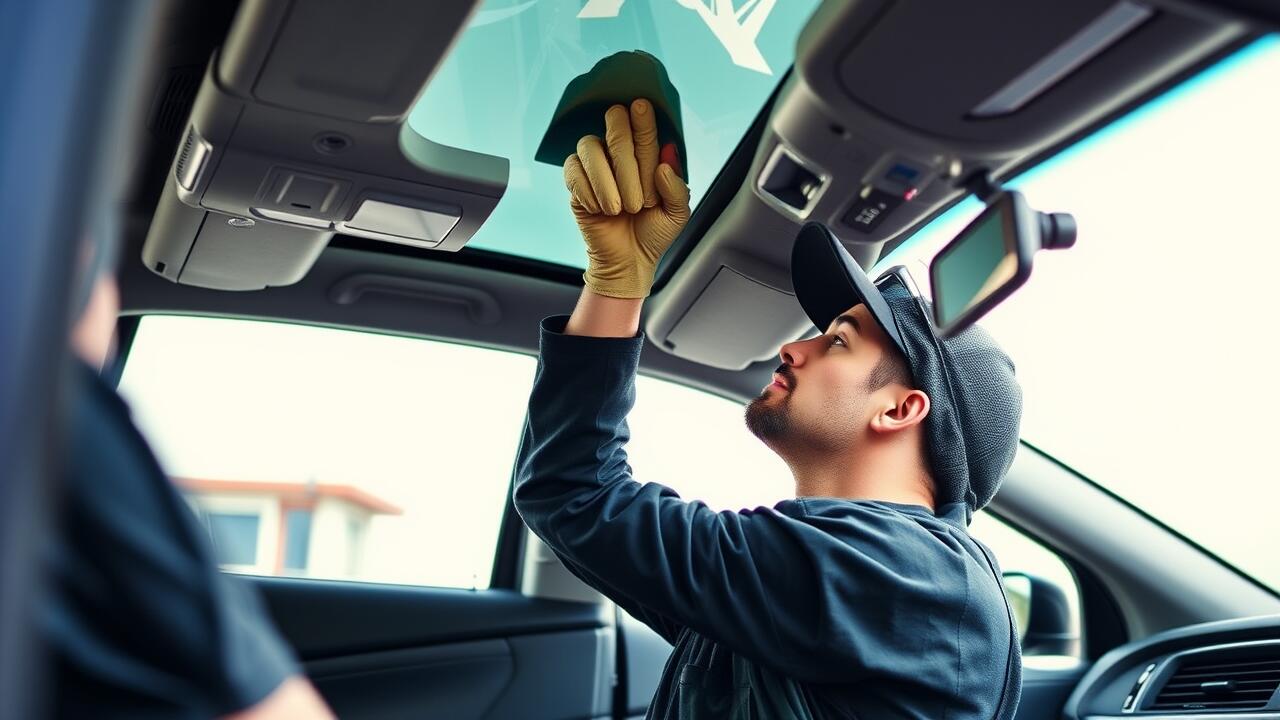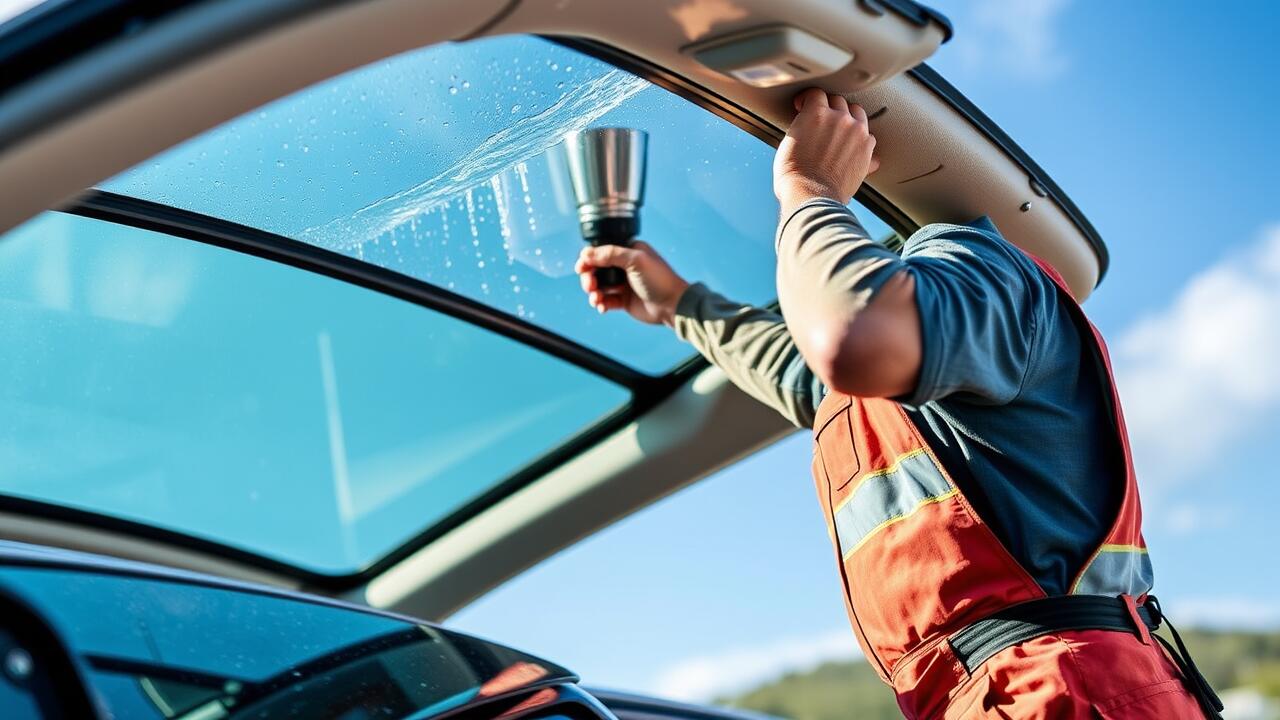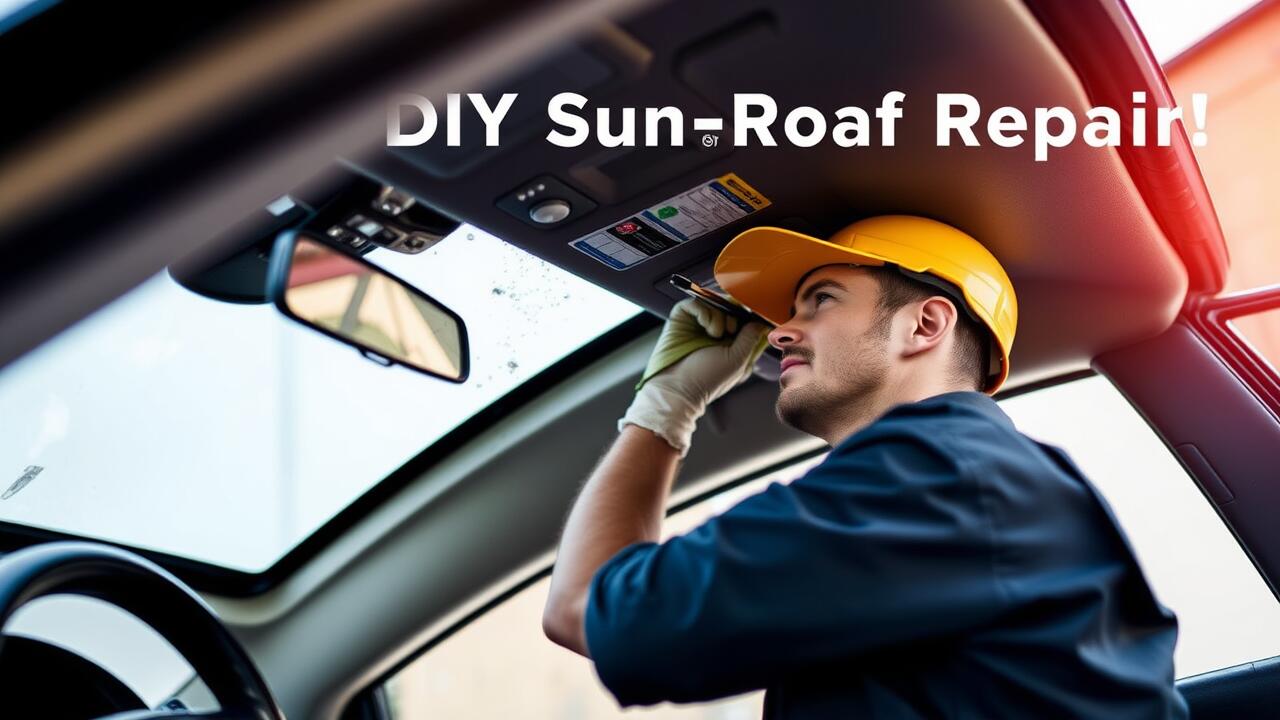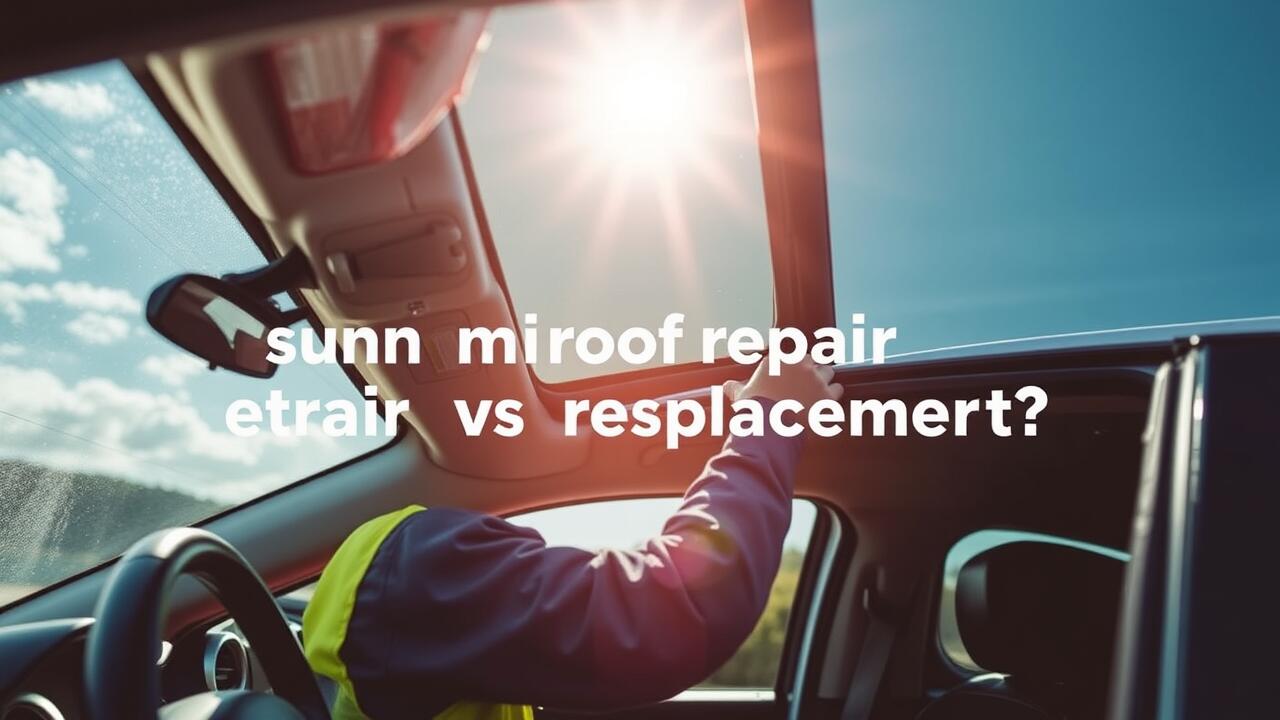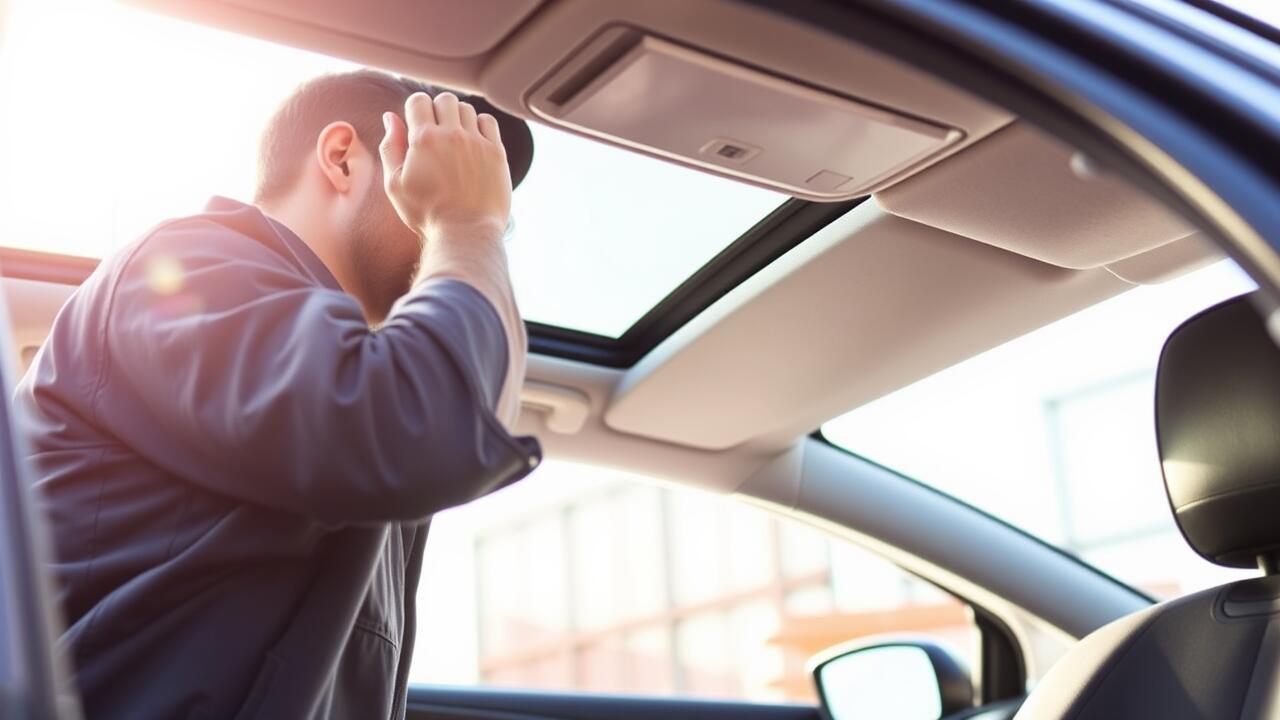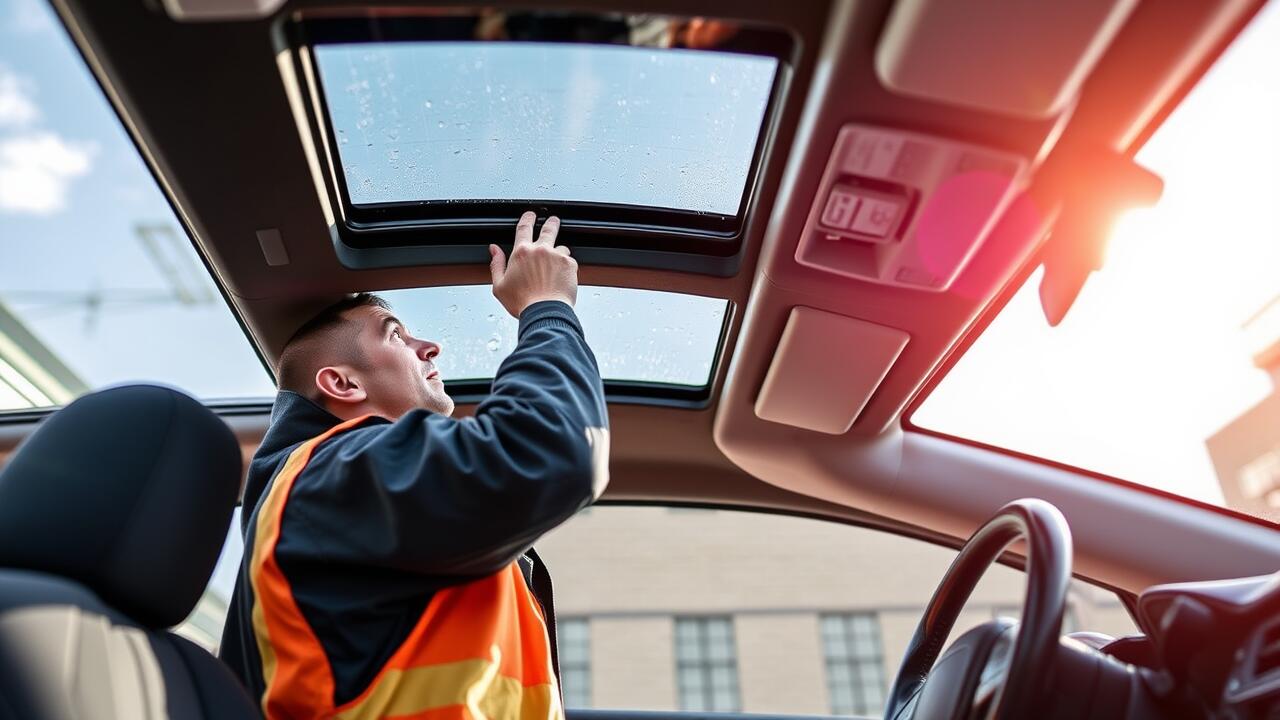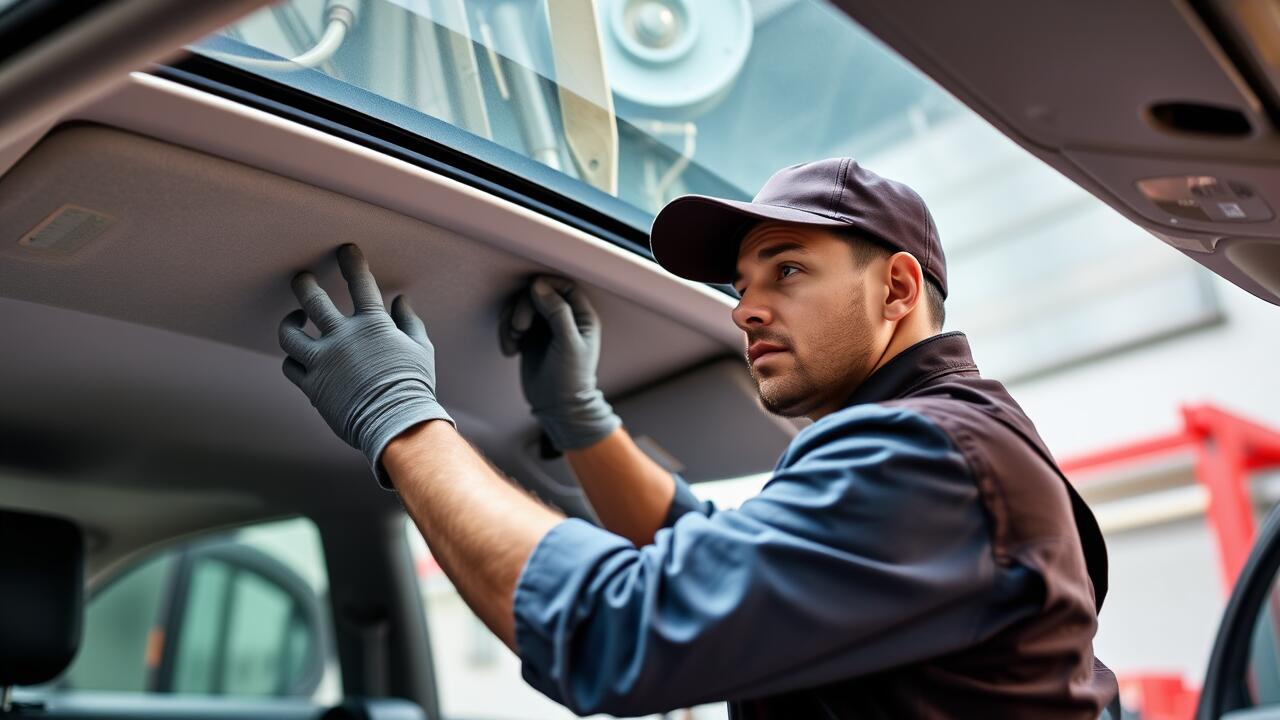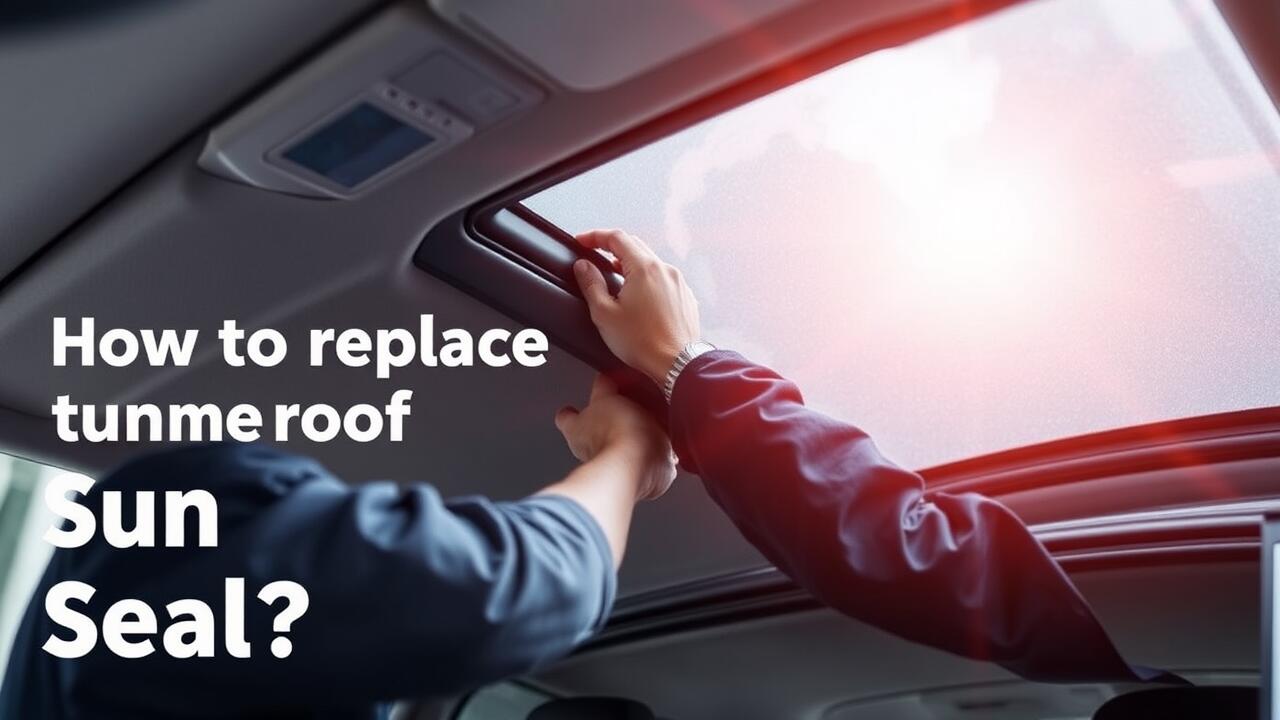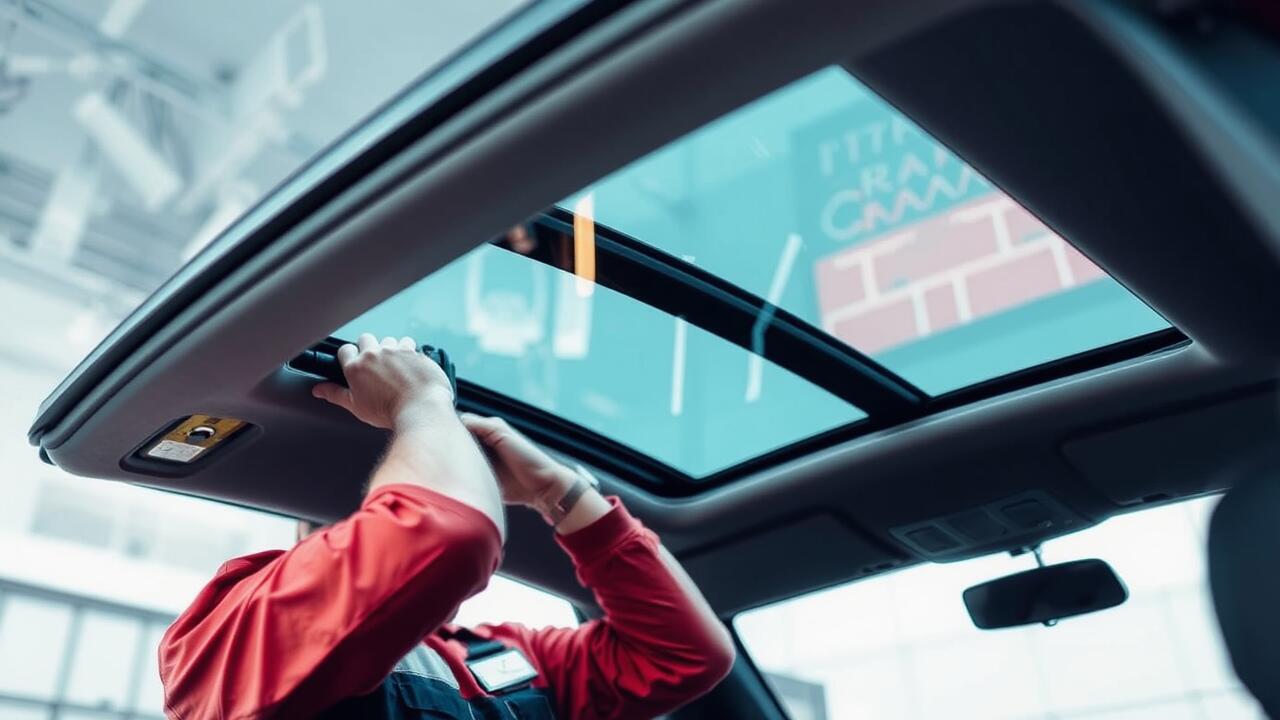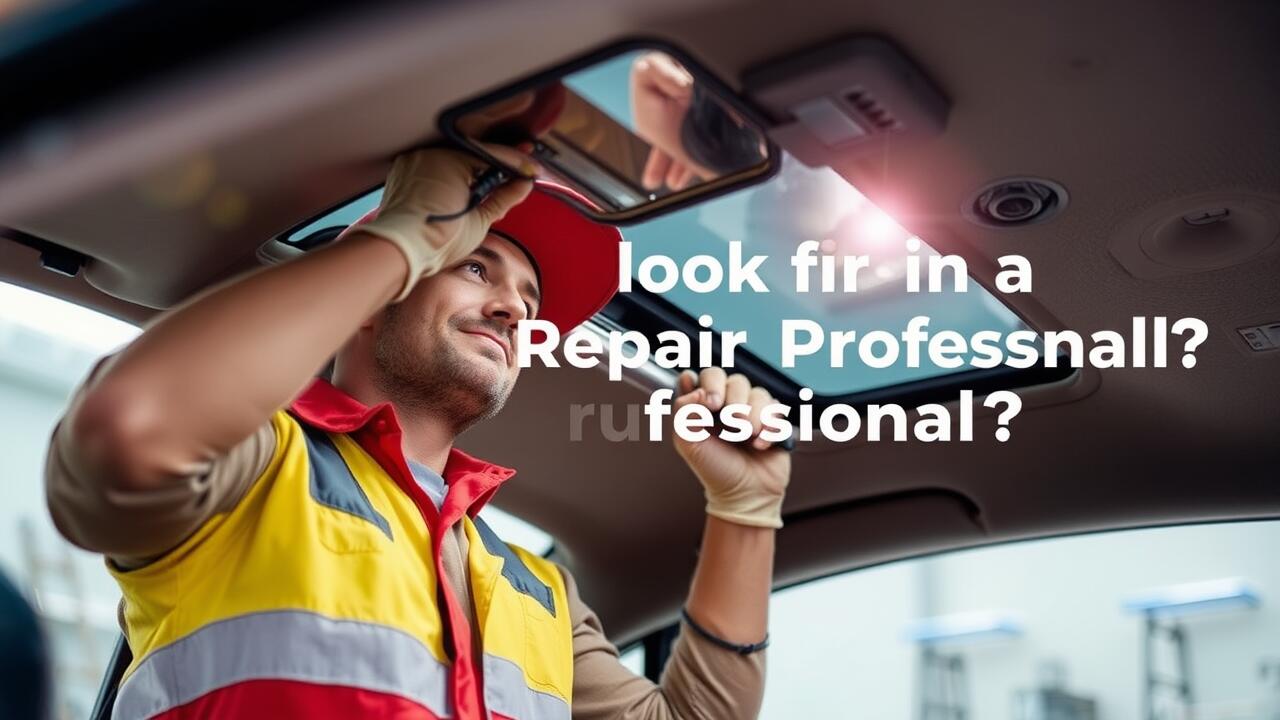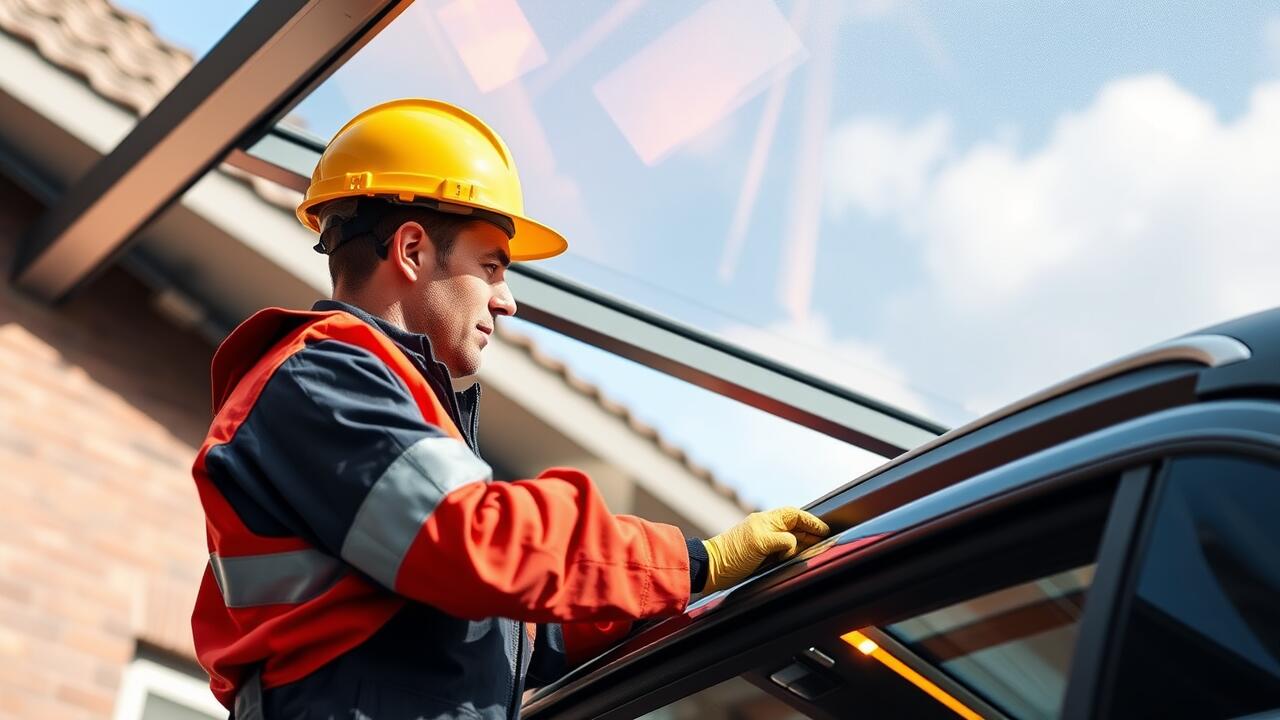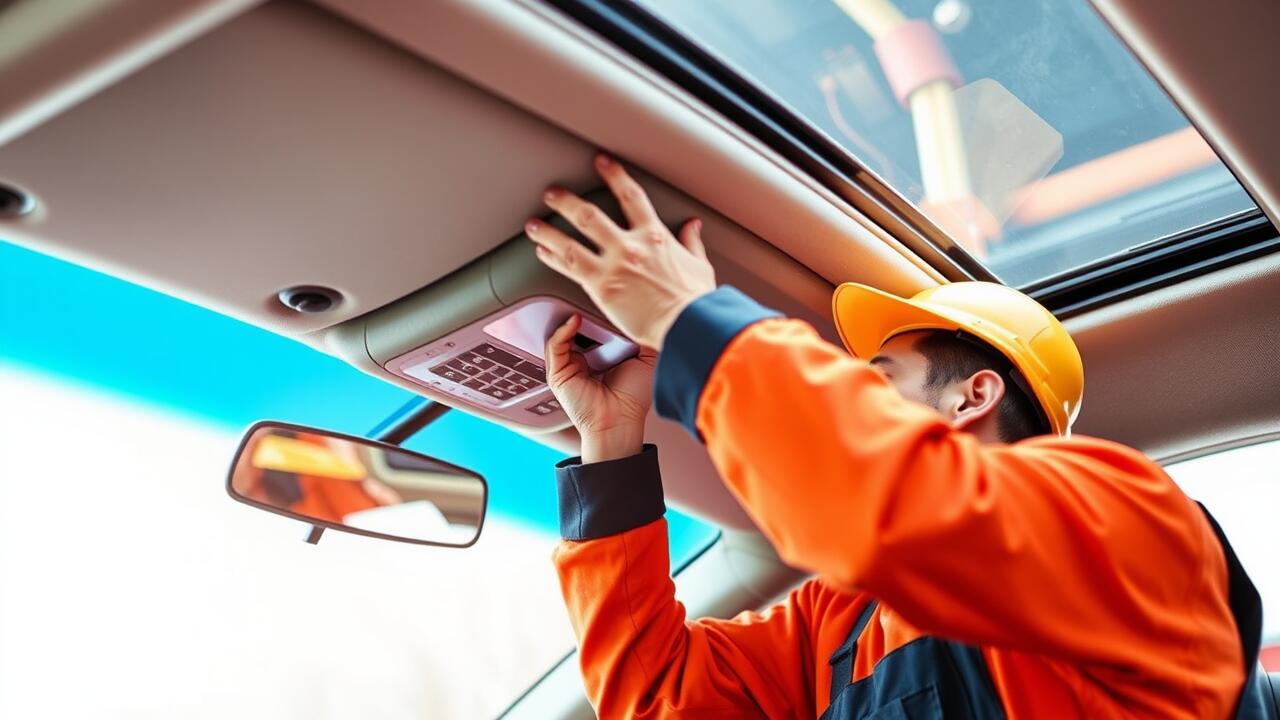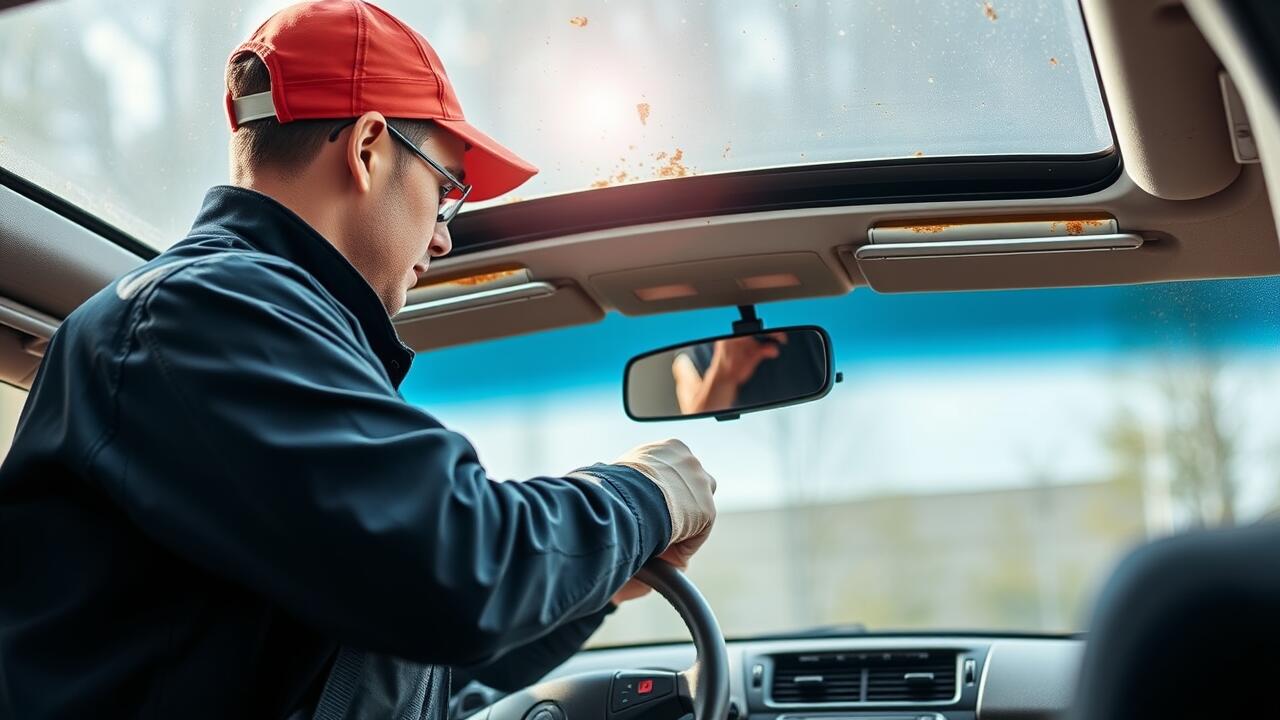
Table Of Contents
Protective Measures for Sunroofs
Sunroofs enhance the driving experience, providing fresh air and natural light. However, they can also be prone to rust and damage if not properly maintained. Regular inspections are crucial to identify any signs of wear or leaks. Keeping the frame and seals clean can prevent debris accumulation, a common cause of rust. It's advisable to check the drainage channels routinely to ensure they are clear and functioning, as blocked channels may lead to water pooling, contributing to rust formation.
Investing in protective measures can significantly extend the life of your sunroof. Sunroof deflectors serve as a useful accessory, minimising wind and rain exposure when the sunroof is open, thus reducing the potential for water ingress. In the event of minor issues, timely Sunroof Repair can mitigate further damage. Keeping essential supplies, such as weather stripping and sealants, on hand ensures that you can address any problems before they escalate, maintaining the integrity of your sunroof.
Installing Sunroof Deflectors
Sunroof deflectors serve multiple purposes, primarily acting as a barrier against both water and debris. These accessories are designed to redirect airflow, preventing wind from entering the vehicle and reducing noise while driving with the sunroof open. Their installation is straightforward, making it an accessible option for many car owners. A well-fitted deflector can also minimise the risk of rust by ensuring that rainwater flows away from the sunroof’s edges rather than pooling around them.
In addition to their protective qualities, sunroof deflectors enhance the aesthetic appeal of your vehicle. They come in various styles and finishes, allowing for customization that matches your car’s design. Regular maintenance of the deflector is important, as it can accumulate dirt and debris over time. Keeping it clean not only maintains its function but can also prevent issues that may arise, which could lead to sunroof repair being necessary if left unchecked.
Choosing the Right Sunroof Accessories
Selecting appropriate sunroof accessories is crucial for maintaining the integrity of your vehicle's sunroof. Quality sunshades not only provide relief from heat and glare but also help in protecting the interior from ultraviolet radiation. An effective sunroof cover can act as a barrier against dust and debris, which may lead to rust formation and damage if left unchecked. It is essential to choose products specifically designed for your sunroof model to ensure a perfect fit and optimal protection.
Carrying out regular assessments of your sunroof accessories can help prevent minor issues from escalating into major concerns. Investing in sunroof repair kits can provide you with the necessary tools for quick fixes. Look for kits that include weatherstripping, sealants, and cleaning agents specifically formulated for sunroofs. By having these essentials on hand, you can address minor wear and tear effectively, prolonging the lifespan of your sunroof and maintaining your vehicle's appearance.
Essential Gear for Sunroof Care
Caring for your sunroof involves having the right gear on hand. A good-quality cleaning solution specifically designed for automotive glass will help maintain clarity and prevent dirt buildup. Use microfiber cloths to gently wipe the glass without scratching its surface. Regular cleaning reduces the risk of rust, as debris trapped around the seals can lead to corrosion over time. A soft brush is also handy for removing dirt from the tracks where the sunroof slides.
For occasions when damage does occur, it's prudent to be prepared with a sunroof repair kit. These kits typically include adhesive sealants that can temporarily patch up minor leaks or cracks. Having this equipment readily available allows car owners to address issues quickly before they escalate into more significant problems. Regular inspections can help identify wear and tear early, making it easier to decide when professional sunroof repair may be necessary.
Repairing Minor Damage Promptly
Addressing minor damage around your sunroof quickly can prevent more severe issues. Small scratches, chips, or dents may seem insignificant at first, but they can allow moisture to penetrate and lead to rusting over time. Inspect the sunroof regularly for signs of damage. If you notice anything amiss, take action immediately to avoid escalating the problem.
For effective sunroof repair, assess the damage to determine the best course of action. If it's a scratch, specialised touch-up paint can be used to seal and protect the area. For more significant issues, such as cracks or misalignment, consulting a professional may be necessary. Prompt repairs not only maintain the appearance of your vehicle but also prolong the life of the sunroof and surrounding components.
Steps for DIY Repairs
Addressing minor damage to your sunroof promptly can prevent more significant issues later on. Start by inspecting the sunroof and the surrounding areas for any signs of rust or wear. If you notice small rust spots, use sandpaper to carefully remove the rust while being cautious not to damage the glass or surrounding paint. After sanding, clean the area thoroughly and apply a rust-inhibiting primer to protect it from further corrosion.
For small scratches or dents, you can use touch-up paint that matches your car's colour. Apply it gently to the affected area and allow it to dry completely. If you encounter leaks, inspect the seals and replace any that seem worn or damaged. In some cases, a simple silicone sealant can work wonders in addressing minor leaks. Regular sunroof repair and maintenance can keep your sunroof functioning smoothly and prevent rust development.
FAQS
What are the best protective measures for sunroofs?
The best protective measures for sunroofs include regularly cleaning the sunroof and its drainage channels, applying protective wax, and installing sunroof deflectors to reduce water ingress and debris exposure.
How do sunroof deflectors help prevent rust?
Sunroof deflectors help prevent rust by redirecting airflow and rainwater away from the sunroof, reducing the amount of moisture that can accumulate around the edges and potentially cause rust.
What should I consider when choosing sunroof accessories?
When choosing sunroof accessories, consider the quality of materials, compatibility with your vehicle, and how the accessory will contribute to moisture control and overall protection against rust and damage.
What essential gear do I need for sunroof care?
Essential gear for sunroof care includes a soft cloth for cleaning, a suitable automotive wax for protection, a spray lubricant for seals, and possibly a sealant to enhance waterproofing.
How can I repair minor damage around my sunroof?
To repair minor damage around your sunroof, clean the area thoroughly, use touch-up paint for scratches, and apply silicone sealant to any gaps or cracks to prevent water from entering and causing further rust.
